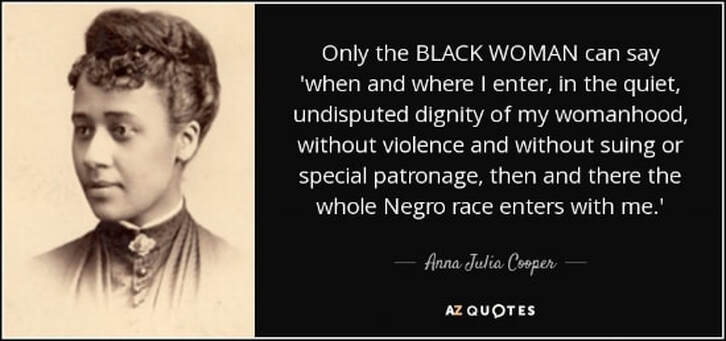
Teaching and pedagogy are most certainly related concepts. However, they are used to reference very different kinds of politics of teaching and learning. Today we often use the word teaching to refer to the sets of learning activities and curricular decisions in educational settings (usually pertaining to schools but not exclusively schools). The word, pedagogy, however, is deliberately about the issues of power and politics in learning, teaching, and educating. Pedagogy is the lens that progressive educators and activists often use especially after Paulo Freire’s book, Pedagogy of the Oppressed. It treats educating as a kind of activism for learning and acting in the world.
Pedagogy also points to something bigger than curriculum. Many think that if the content of the reading material is political, then the classroom is automatically progressive and forward-marching too. This is not the case. How to teach is as political as what you teach and is deeply nested with centuries of white supremacy, racism, and schooling.
Pedagogy also points to something bigger than curriculum. Many think that if the content of the reading material is political, then the classroom is automatically progressive and forward-marching too. This is not the case. How to teach is as political as what you teach and is deeply nested with centuries of white supremacy, racism, and schooling.
|
|
Here we will feature the educational histories of Black women as teachers. The history of the first Black women teachers in this country coincides directly with the ending of slavery and ongoing struggles for Black emancipation. There was never a moment when Black women’s teaching wasn’t political. There was never a moment when they didn’t have to confront misogyny and white supremacy in what they taught, how they taught, who they taught, and in their very right to exist as teachers. There was never a moment when they separated schooling, pedagogy, activism, and anti-racism. And yet today, we live in a world where anti-racist pedagogy is either: a) treated as newly radical, and/or; b) missing any mention of Black women teachers.
|
We start by looking at the history of Black women teachers as the very embodiment of pedagogy. PERIOD. We begin by reading Linda Perkins's essay, “The Role of Education in the Development of Black Feminist Thought, 1860-1920.”
 Suggested Reading: A Voice from the South by Anna Julia Cooper
Suggested Reading: A Voice from the South by Anna Julia Cooper
Here are more reading suggestions:
- “At the Kitchen Table: Black Women English Educators Speaking Our Truths” by Marcelle Haddix, Sherell McArthur, Gholdy Muhammad, Detra Price-Dennis, Yolanda Sealey-Ruiz
- "Becoming a Writerly Self: College Writers Engaging Black Feminist Essays" by Juanita Johnson Comfort
- "Black Girl Pedagogies: Layered Lessons on Reliability" by Dominique C. Hill
- "Black Womanist Teachers’ Political Clarity in Theory and Practice" by Maxine McKinney de Royston
- “ ‘Bound to Them by a Common Sorrow’: African American Women, Higher Education, and Collective Advancement” by Linda M. Perkins
- "Clean Corners and Algebra: A Critical Examination of the Constructed Invisibility of Black Girls and Women in Mathematics” by Maisie L. Gholson
- “A Clear Lack of Equity in Disciplinary Consequences for Black Girls in Texas: A Statewide Examination” by John R. Slate, Pamela L. Gray, and Brandolyn Jones
- "Developing the 'Oppositional Gaze': Using Critical Media Pedagogy and Black Feminist Thought to Promote Black Girls’ Identity Development” by Charlotte E. Jacobs
- "Fear of a Black Femme: The Existential Conundrum of Embodying a Black Femme Identity While Being a Professor of Black, Queer, and Feminist Studies" by Kaila Adia Story (2017)
- “For Loretta: A Black Woman Literacy Scholar’s Journey to Prioritizing Self-Preservation and Black Feminist-Womanist Storytelling” by April Baker-Bell
- "A Genuine Article: Intersectionality, Black Lesbian Gender Expression, and the Feminist Pedagogical Project" by Mel Michelle Lewis
- "Heed Life's Demands: The Educational Philosophy of Fanny Jackson Coppin" by Linda M. Perkins
- “I’m a Black Female Who Happens to be Muslim”: Multiple Marginalities of an Immigrant Black Muslim Woman on a Predominantly White Campus” by Keon M. McGuire, Saskias Casanova, and Charles H.F. Davis III
- "Keeping It Relevant: Student-Centered Reflections, Choices, and Actions of Critical Race Womanist Pedagogues" by Wanda Watson and Cathryn A. Devereaux
- “Lessons in Love, Literacy, and Listening: Reflections on Learning with and from Black Female Youth” by Erica Womack
- "Mammy No More/Mammy Forever: The Stakes and Costs of Teaching Our Colleagues" by Tiffany Willoughby-Herard
- "Matters of Life and Love: Some Preliminary Mappings of Womanist Pedagogical Futures" by Sabrina N. Ross
- “Mentors' Reflections on Developing a Culturally Responsive Mentoring Initiative for Urban African American Girls” by LaShawnda Lindsay-Dennis, Lawanda Cummings and Susan Crim McClendon
- "Merze Tate and the Quest for Gender Equity at Howard University: 1942-1977" by Linda M. Perkin
- “Missing Black Undergraduate Women and the Politics of Disposability: A Critical Race Feminist Perspective” by Lori D. Patton and LaWanda W. Ward
- “Nobody Mean More: Black Feminist Pedagogy and Solidarity” by Alexis Pauline Gumbs
- #Say[ing]HerName as Critical Demand: English Education in the Age of Erasure” by Tamara Butler
- “ 'She Has a Real Connection with Them': Reimagining and Expanding Our Definitions of Black Masculinity and Mentoring in Education through Female Masculinity" by Bettina L. Love
- “Sippingtea: Two Black Female Literacy Scholars Sharing Counter-Stories to Redefine Our Roles in the Academy” by ThedaMarie Gibbs Grey and Bonnie Williams-Farrier
- The Sisters are Alright: Changing the Broken Narrative of Black Women in America by Tamara Winfrey Harris (Berrett-Koehler, 2015)
- “Still, Nobody Mean More: Engaging Black Feminist Pedagogies on Questions of the Citizen and Human in Anti-Blackqueer Times “ by Durell M. Callier
- “The Strength from Within: A Phenomenological Study Examining the Academic Self-Efficacy of African American Women in Doctoral Studies” by Deniece Dortch
- “'Talking Back': The Perceptions and Experiences of Black Girls Who Attend City High School” by Terri N. Watson
- “Three Paths, One Struggle: Black Women and Girls Battling Invisibility in U.S. Classrooms” by Chayla Haynes, Saran Stewart, and Evette Allen
- “Unearthing and Bequeathing Black Feminist Legacies of Brown to a New Generation of Women and Girls” by Tondra L. Loder-Jackson, Lois McFadyen Christensen, and Hilton Kelly
- “Visionary Response: Listening ‘Face-to-Face’ and ‘Eye-to-Eye’: Seeing and Believing Black Girls and Women in Educational Practice and Research” by Marcelle Haddix
- "We Got Soul: Exploring Contemporary Black Women Educators’ Praxis of Politicized Care" by Wanda Watson
- "What Happened When I Invited Students to See Me? A Black Queer Professor’s Reflections on Practicing Embodied Vulnerability in the Classroom" by Dominique C. Hill
- "What’s Radical about Youth Writing?: Seeing and Honoring Youth Writers and Their Literacies" by Marcelle Haddix
- “When Margins Become Centered: Black Queer Women in Front and Outside of the Classroom” by Moya Bailey and Shannon J. Miller in Feminist Formations (2015)
- “Why We Can’t Wait: (Re)Examining the Opportunities and Challenges for Black Women and Girls in Education” by Lori D. Patton, Kimberlé W. Crenshaw, Chayla Haynes, and Terri N. Watson
- "A Womanist Experience of Caring: Understanding the Pedagogy of Exemplary Black Women Teachers" by Tamara Beauboeuf-Lafontant
- "Womanist Theology and Its Efficacy for the Writing Classroom" by Donald McCrary
To Cite This Page:
Kynard, Carmen and Eric Darnell Pritchard. "'When and Where I enter': History, Black Feminist Thought and Pedagogy." Tracing the Stream, August 2022, https://www.tracingthestream.com/when-and-where-i-enter-history-black-feminist-thought--pedagogy.html.
Kynard, Carmen and Eric Darnell Pritchard. "'When and Where I enter': History, Black Feminist Thought and Pedagogy." Tracing the Stream, August 2022, https://www.tracingthestream.com/when-and-where-i-enter-history-black-feminist-thought--pedagogy.html.
